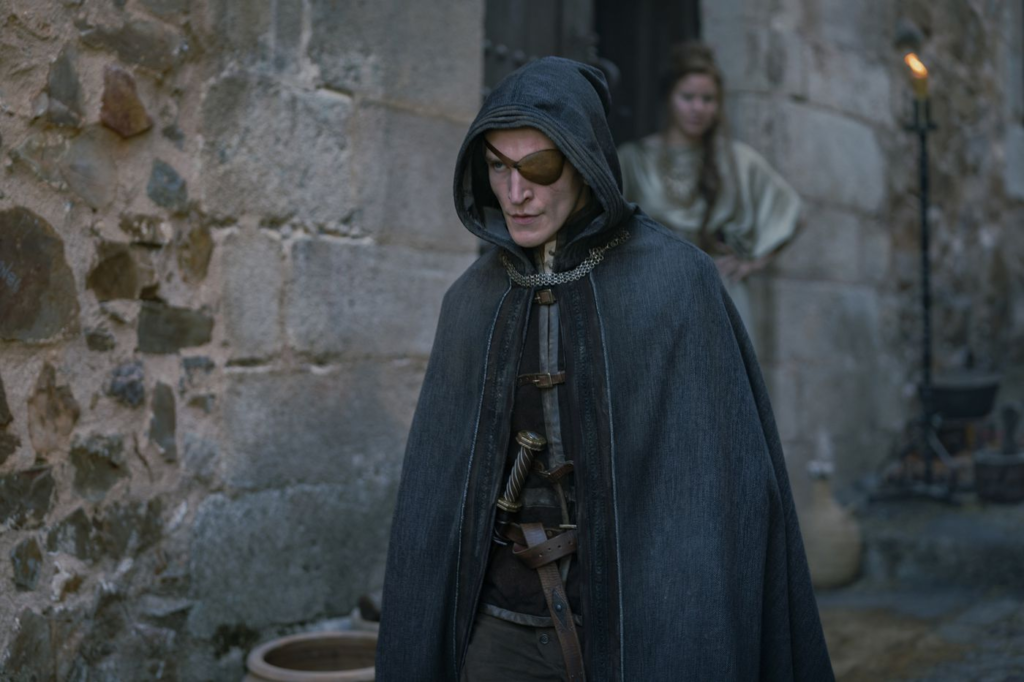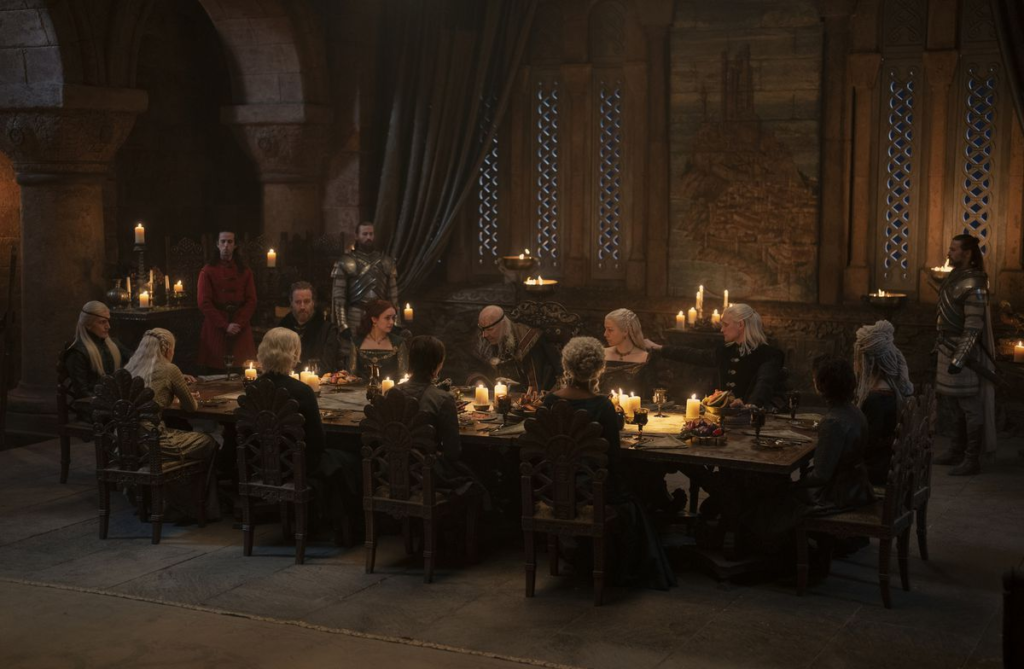
The villains in A Song of Ice and Fire have always been interesting. The vicious and unrepentant monsters like Joffrey Baratheon or Ramsay Bolton seem to be the most memorable, but the ambitious and complex schemers like Littlefinger and Cersei, as well as Tywin Lannister, are what really set the series apart.
On both counts, House of the Dragon enhances the heritage of the franchise with outstanding characters. Aemond Targaryen, whose combination of cunning, impatience, and a sapphire eye makes the show’s interpretation of him one of A Song of Ice and Fire’s best and most tragic characters, is the most intriguing inclusion.
Among its most notable cast, at least, A Song of Ice and Fire rarely deals in genuine villainy. Instead, it presents us with selfish people who are only genuinely evil when their desire for power overrides their morality and when those desires frequently clash with the story’s primary characters. However, they are almost never violent openly and almost always well-founded and comprehensible.
The plots of the best schemers in the series, like Littlefinger or Varys, resemble tales of retribution as they strive for power that they believe they deserve but have been unfairly denied by society. Despite the fact that Tywin and Cersei are the most powerful individuals in Westeros, they long for the respect and title of their strength and knowledge.

On the other hand, the series typically emphasizes a main character’s violence when it decides to make them completely repulsive. These horrifying individuals are the opposite of the schemers in that they are in positions of power and are aware of it, but they have no goals beyond brutality. Characters like Joffrey and Ramsay only perceive their authority as the capacity to use violence against people who are weaker than them. Rarely is such aggression motivated by retaliation or anything more than sadistic desire and a desperate display of dominance? They find sadism to be more entertaining than a game of thrones.
Aemond Targaryen from House of the Dragon falls somewhere in the middle between these two extremes. He is incredibly ambitious, motivated, brilliant, and skillful, but he is also motivated by a desire for vengeance that is inherently violent (especially in episode 10). Aemond believes he is profoundly deserving of more than his reckless and weak brother, much like House of the Dragon’s other disgruntled second-son Daemon Targaryen, especially after a childhood full of bullying from that same brother and his (possibly) bastard relatives. Even though Aemond appears to have estimated his life after his uncle, Daemon, who found that power in his violent tendencies and the strength of his dragon, so does he try to find it there as well.
Aemond’s impression of his uncle’s bravery as a child, like most generational relationships in A Song of Ice and Fire, led to an exaggerated version of Daemon that only exists in Aemond’s mind and only tells half of Daemon’s story.

Aemond managed to steal Daemon’s princely bluster, cunning, and arrogant pride, but he has left with the inferiority complex that fuels Daemon’s more violent tendencies. The end result is a teenager who is cunning enough to persuade a house to support his mother’s cause, smart enough to study better and exercise harder than his brother, but yet impulsive enough to threaten to kill his younger cousins with a rock in a fist fight.
Aemond’s tragic position as the series’ center villain prevents him from fully realizing the power he actually possesses; however, unlike the schemers, that power is restricted to violence, just like that of the monsters. When Luke gets to Storm’s End, Aemond has already claimed the award. The Baratheons will support Aegon as the king, instead of Rhaenyra. But for Aemond, this is also a chance for revenge — an eye for an eye. Even if it’s violent, it’s fair in a purely biblical sense.
Aemond decides that a price must be paid even though he does not mean for that price to be death when Luke refuses his offer to settle the score. Aemond is one of the few people in A Song of Ice and Fire who radically underestimate his own capacity for doing harm and the implications his impulses might include when he loses control of Vhagar during their mid-air combat with Luke and Arrax, and the dragon consumes them both.

Luke’s death is shown in “The Black Queen” with great care: Both boys struggle to control their dragons, and unfortunately neither knows what it takes to take such a beast into battle. Aemond’s calm resolve temporarily gives way to desperate cries to convince the largest and oldest dragon to pay attention to him. Lucerys’ death isn’t the result of spoiled princely sadism like Joffrey or a coldly calculated move up power’s invisible rungs.
A teenager who had endured bullying his entire life caused this tragic accident by failing to realize how the situation had changed. After having spent his entire life feeling inferior, including when his own unworthy brother was crowned king, Aemond now has the ability to take lives and start wars. If an anime villain was the one who started World War I, then he is an anime villain. And regrettably, if Westeros is to avoid war, he may have to act even worse than he already does in order to survive.
Read more:
Time for Taylor Swift’s New Launch, ‘Midnights’